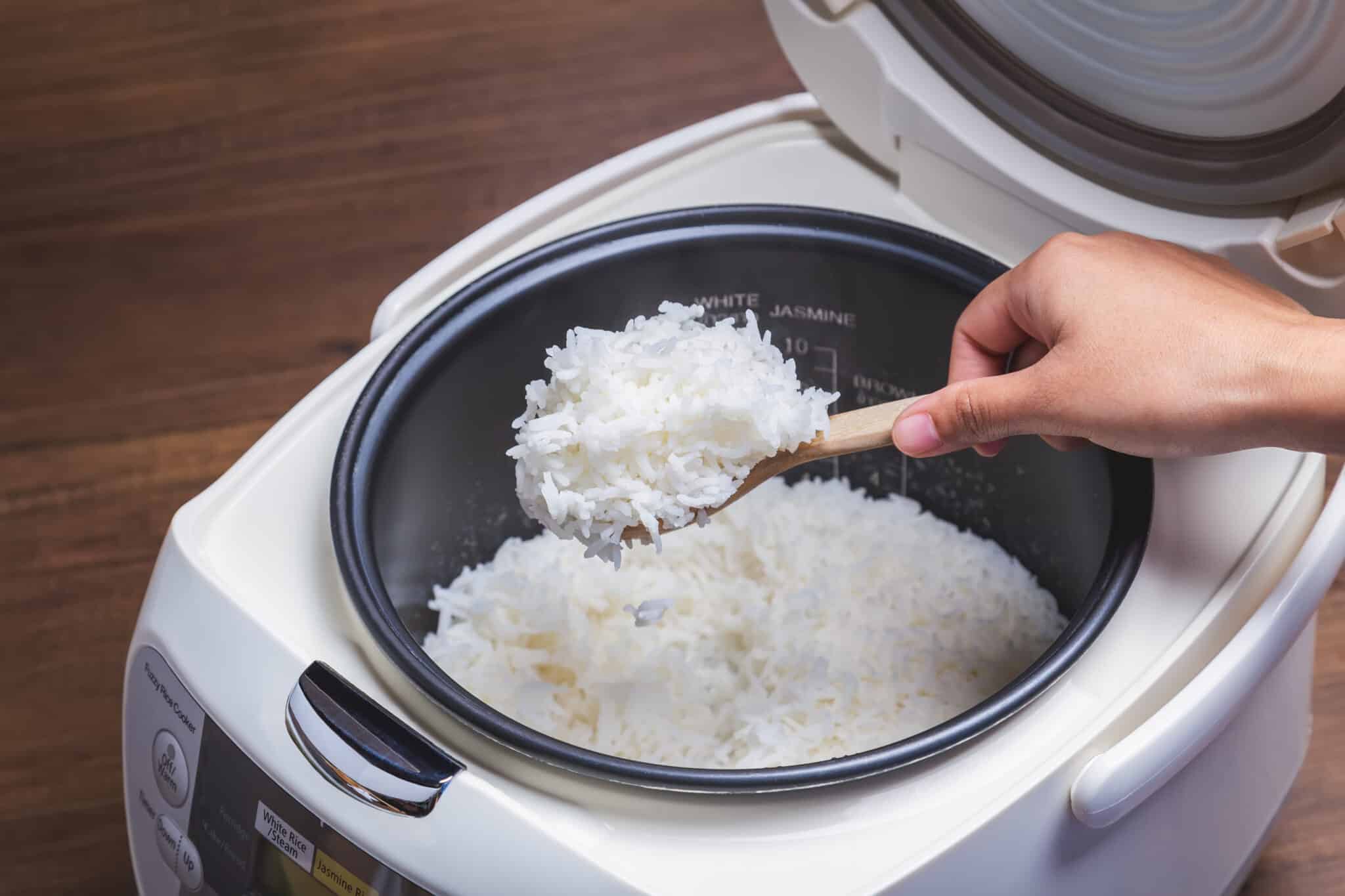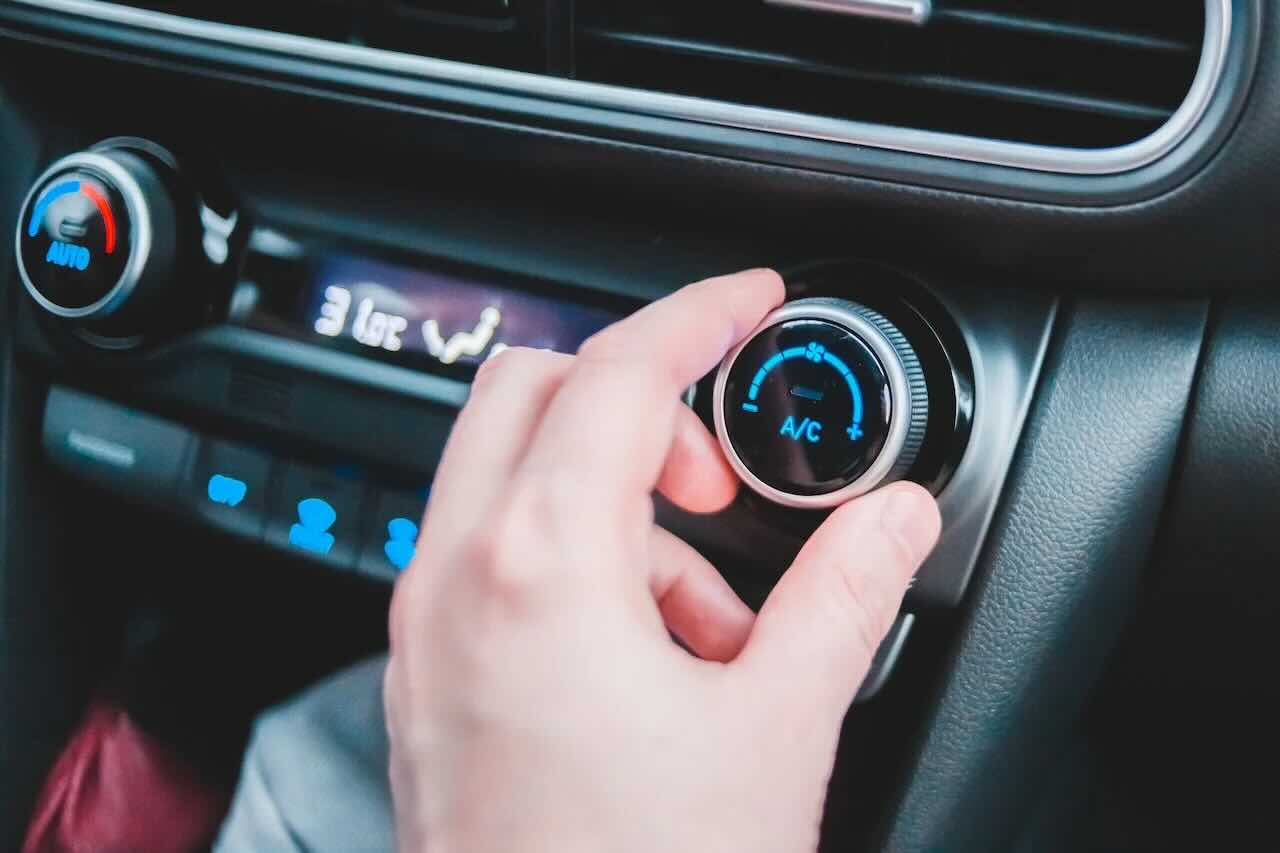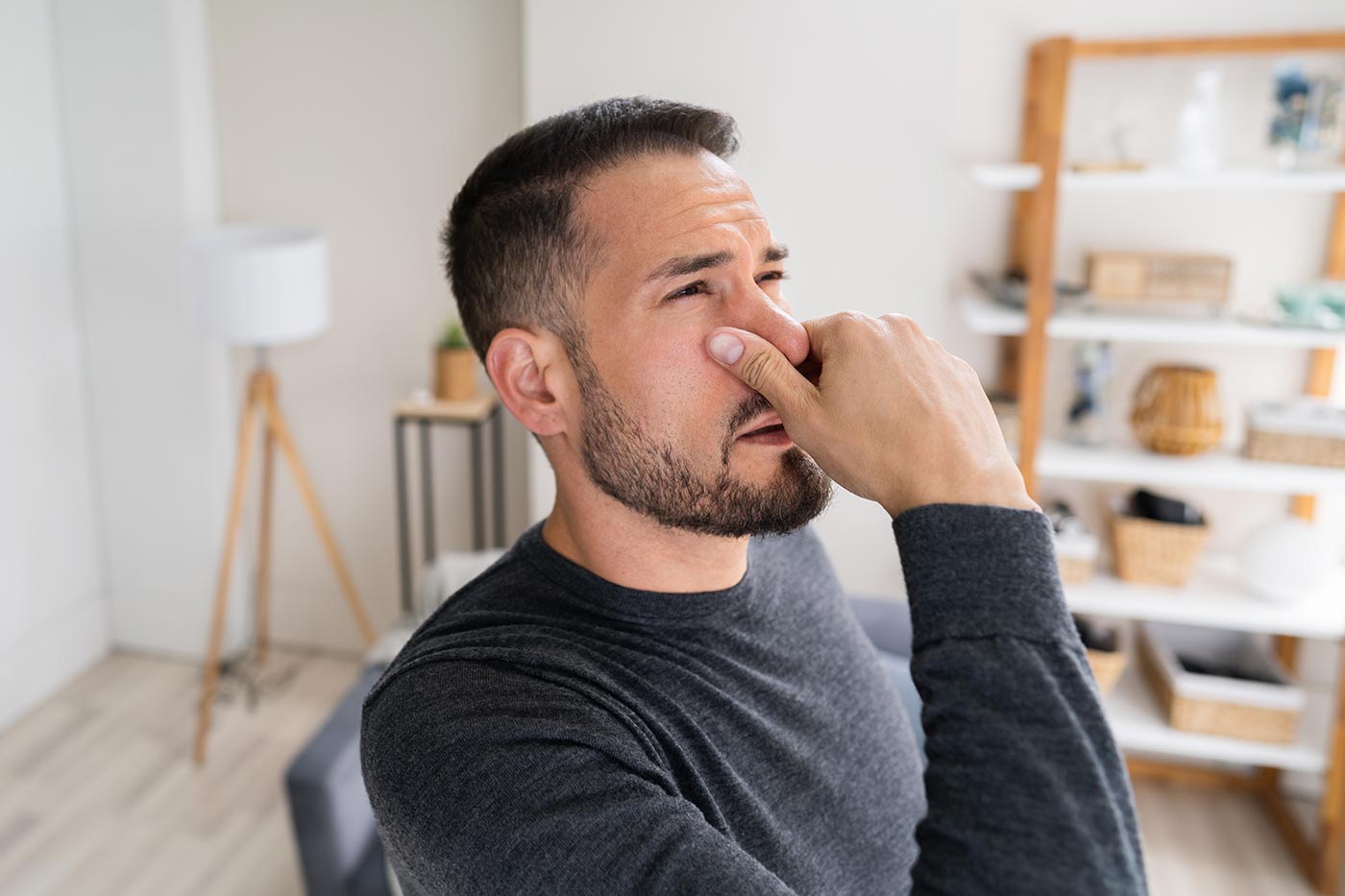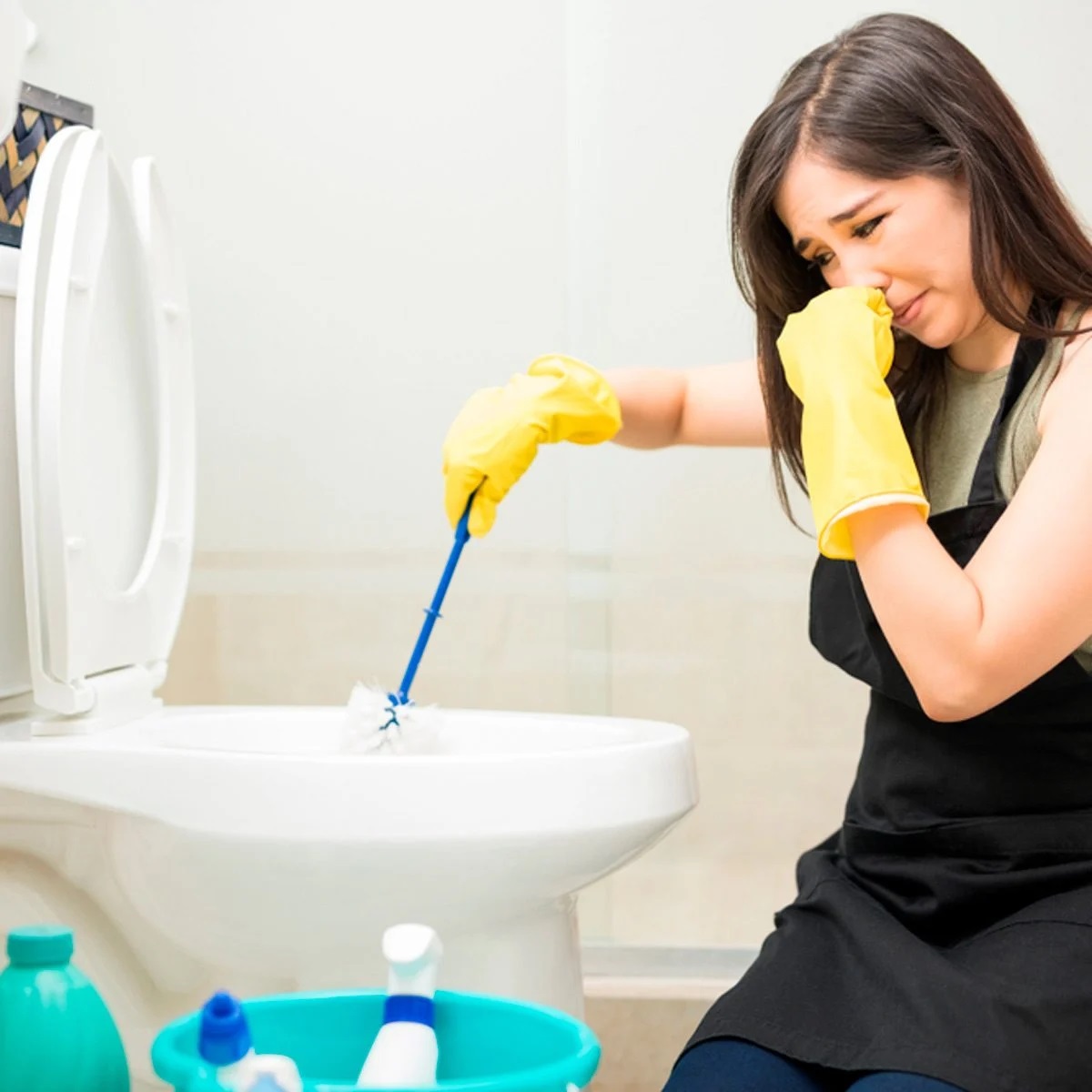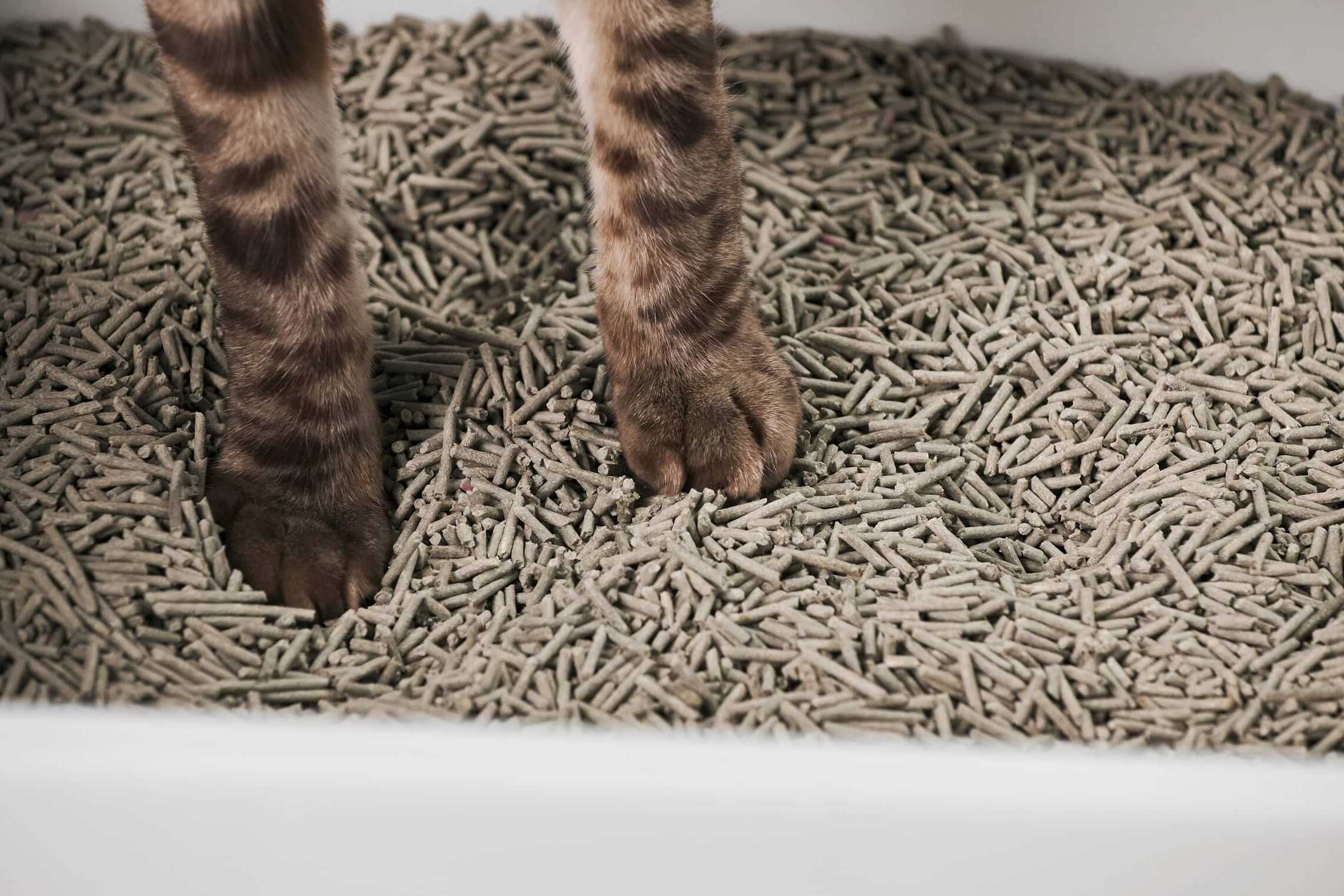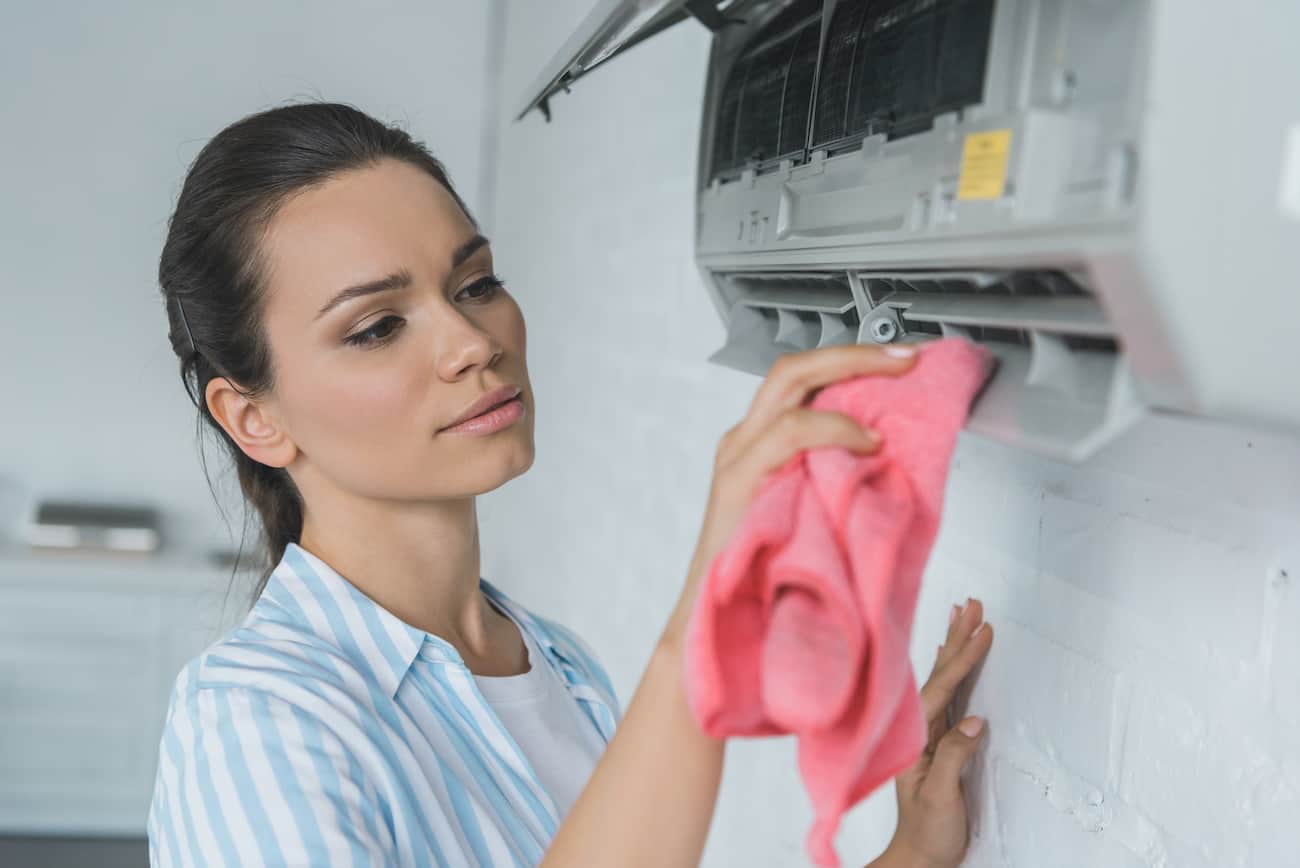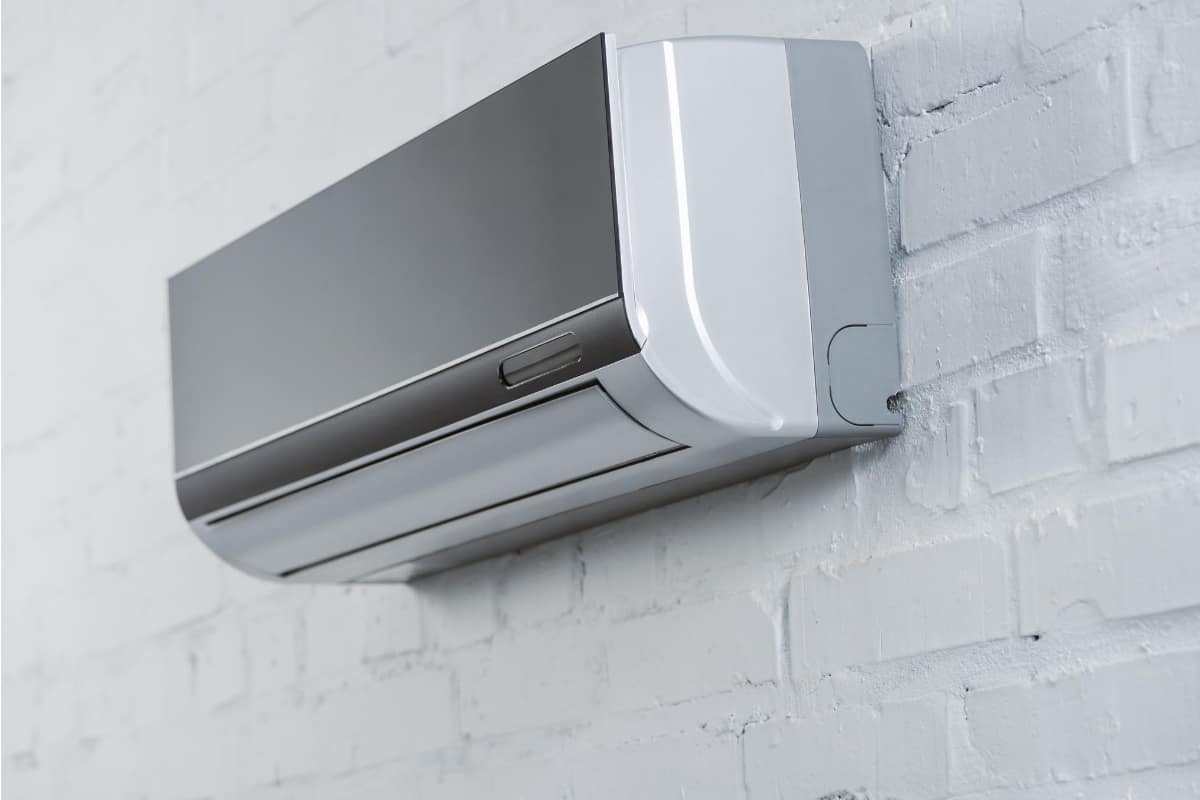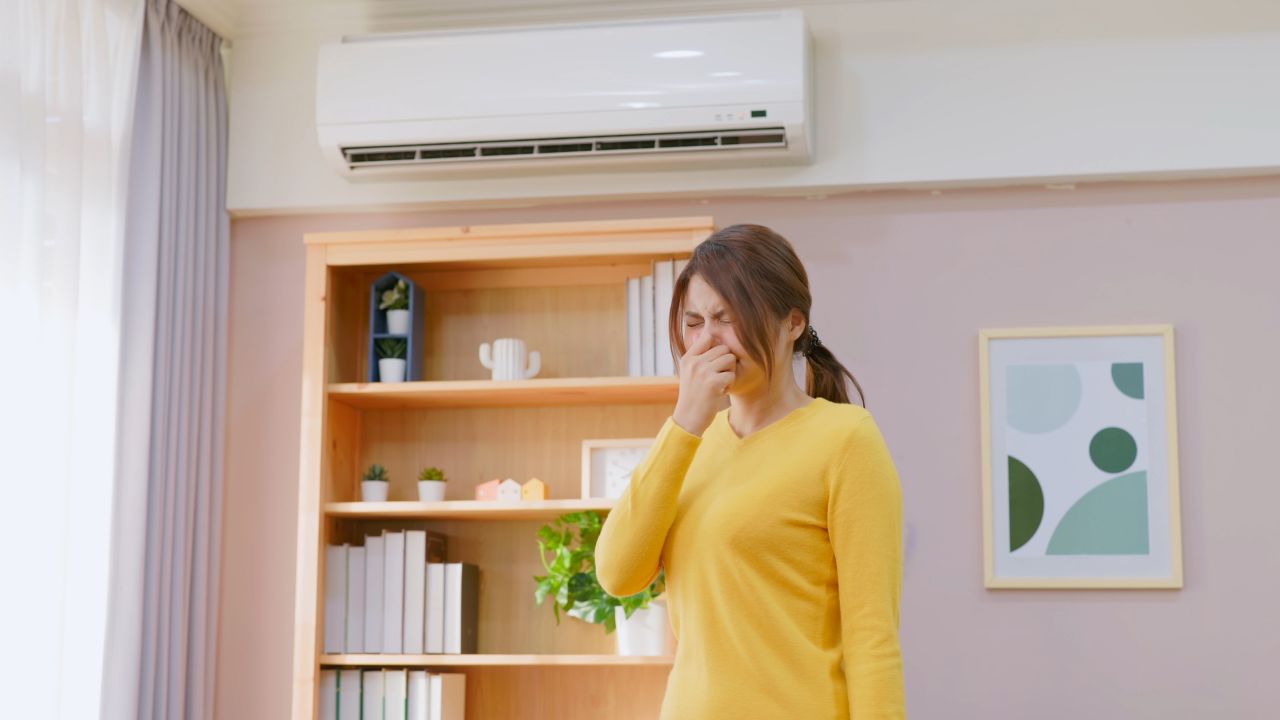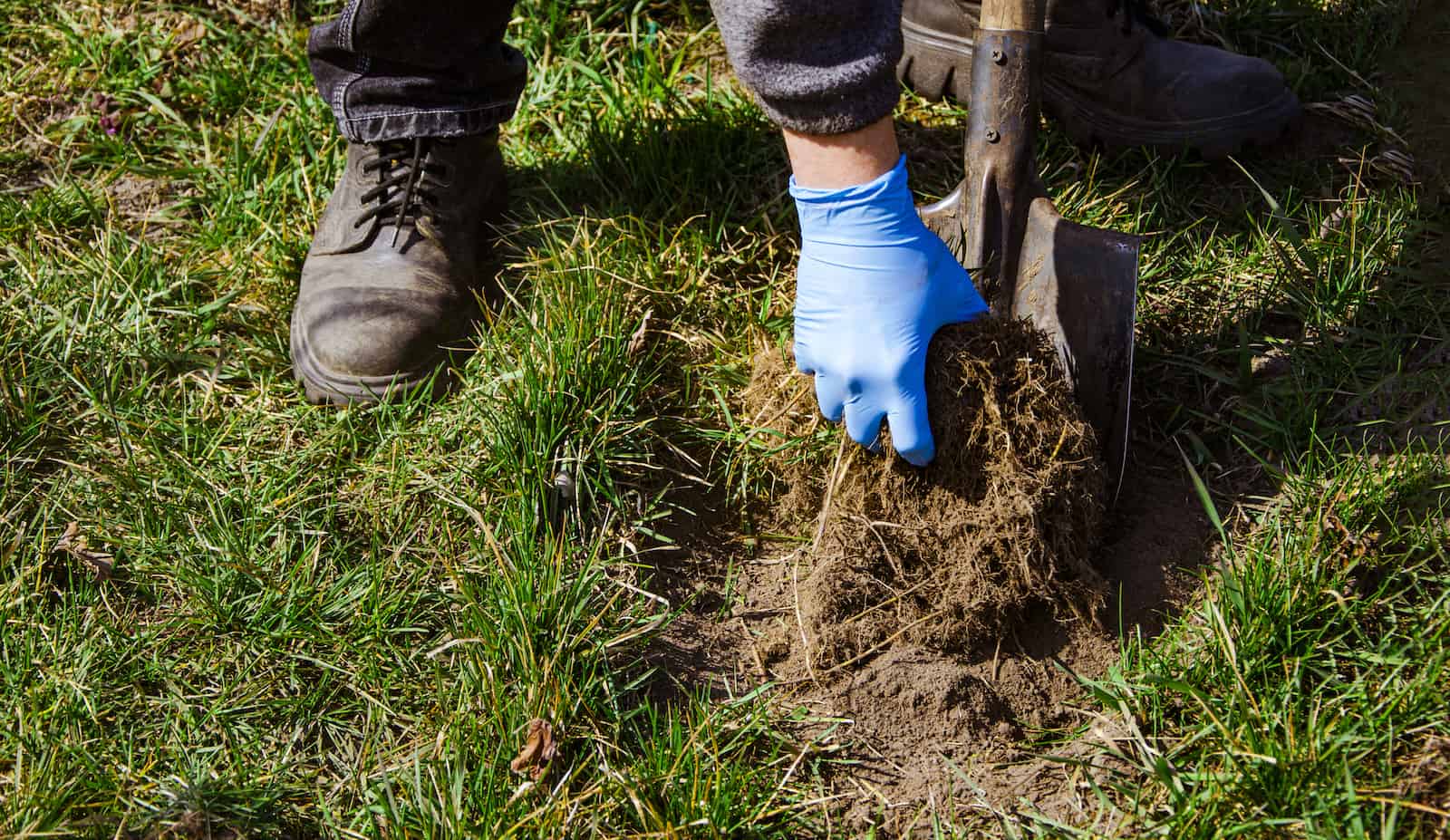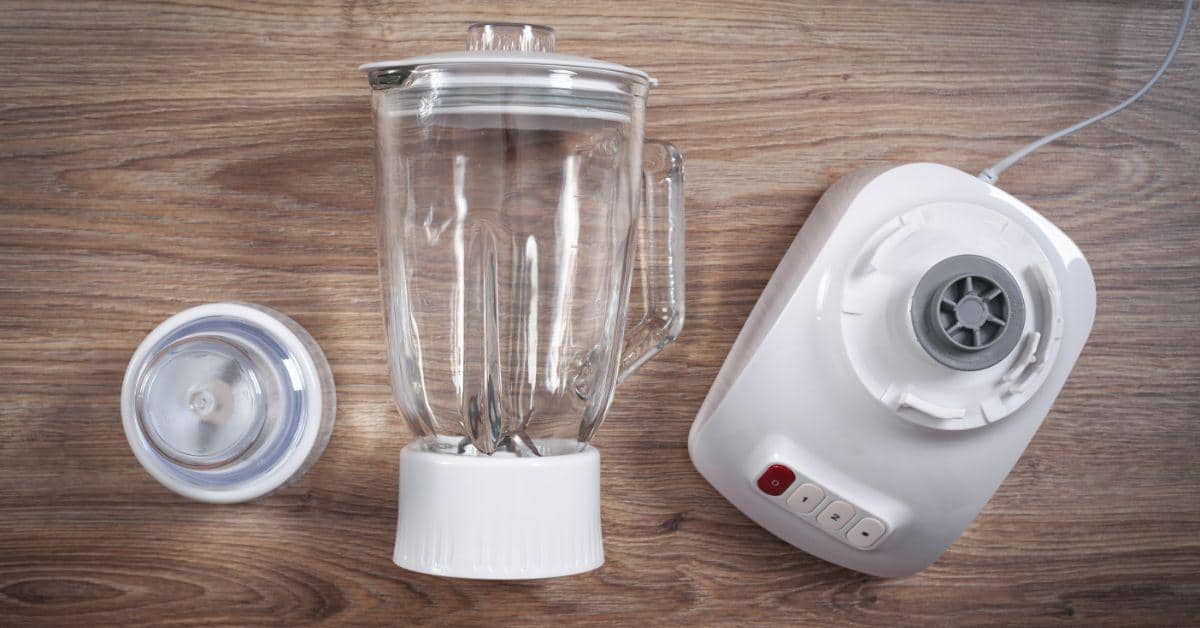Home>Home Maintenance>Why Does My Air Conditioner Smell Bad?
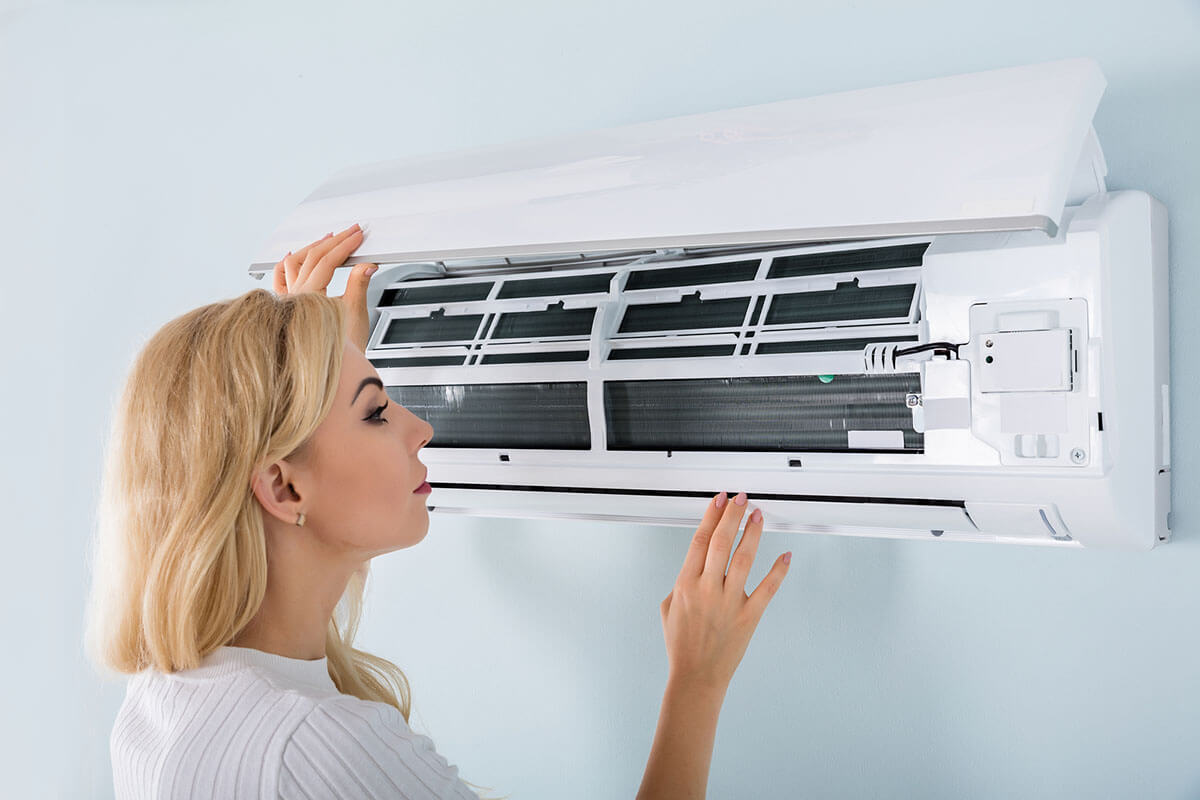

Home Maintenance
Why Does My Air Conditioner Smell Bad?
Modified: October 20, 2024
Discover the reasons behind the unpleasant odors coming from your air conditioner. Learn how to solve this problem with our home maintenance tips.
(Many of the links in this article redirect to a specific reviewed product. Your purchase of these products through affiliate links helps to generate commission for Storables.com, at no extra cost. Learn more)
Introduction
Welcome to the world of home maintenance, where we understand the importance of a comfortable and inviting living space. One of the essential components of maintaining a pleasant environment is a properly functioning air conditioner. However, it can be quite disconcerting when your air conditioner starts emitting unpleasant odors. Whether it’s a musty smell or a pungent odor, the experience can be quite off-putting and indicate an underlying issue that needs to be addressed.
In this article, we will explore the common causes behind the bad smell in air conditioners and provide effective solutions to eliminate those odors. Understanding these causes will not only help prevent future odor-related issues but also ensure the longevity and efficiency of your air conditioning system.
So, let’s dive in and uncover the reasons why your air conditioner might be emitting unpleasant smells, and how you can tackle this problem head-on.
Key Takeaways:
- Regular cleaning and maintenance is crucial to eliminate bad odors in your air conditioner. By cleaning filters, inspecting ducts, and maintaining your unit, you can enjoy fresh and clean air in your home.
- Professional air duct cleaning and using air purifiers can effectively remove bad odors and improve indoor air quality. These methods help eliminate contaminants and create a healthier living environment.
Read more: Why Does My Air Conditioner Smell Burnt
Common Causes of Bad Smell in Air Conditioners
There are several factors that can contribute to a bad smell emanating from your air conditioner. Understanding these common causes will help you identify the source of the odor and take appropriate actions. Let’s take a closer look at the most prevalent culprits:
- Mold and Mildew Build-Up: The dark and damp environment inside your air conditioner provides the perfect breeding ground for mold and mildew. When these organisms grow and multiply, they release a musty odor that gets circulated throughout your home when the AC is running.
- Clogged Drain Line: Over time, the drain line of your air conditioner can become clogged with debris, algae, or mold. This blockage prevents proper drainage of condensation, leading to stagnant water and an unpleasant smell.
- Dirty Air Filters: Air filters are designed to trap dust, dirt, and other airborne particles. However, when these filters become dirty and clogged, they can emit a foul smell. Additionally, when filters are not changed regularly, they can become a breeding ground for mold and bacteria, exacerbating the odor problem.
- Decomposing Pests or Animals: It’s not uncommon for pests or small animals to find their way into your HVAC system. If they get stuck or pass away in the system, the decomposing remains can create a strong and unpleasant smell.
- Chemical Build-Up: Sometimes, the unpleasant odor coming from your air conditioner can be attributed to chemical build-up. This can occur if your AC system is leaking refrigerant or if there are issues with the electrical components. These chemicals can emit a strong and noxious smell that should be addressed immediately.
Identifying the specific cause of the bad odor in your air conditioner is crucial to effectively resolving the issue. Next, we will explore solutions to eliminate these unpleasant smells and restore fresh and clean air to your home.
Mold and Mildew Build-Up
Mold and mildew are common culprits when it comes to bad smells emanating from your air conditioner. These fungi thrive in moist and dark environments, which are often present inside AC units. Mold and mildew growth can not only produce an unpleasant odor but also pose health risks to you and your family.
When warm air passes through the cooling coils of the AC, condensation occurs. If this moisture is not properly drained or if there is a buildup of dust and debris, it creates the ideal conditions for mold and mildew to flourish. As these microorganisms grow, they release spores and volatile organic compounds (VOCs) into the air, which can cause allergic reactions, respiratory issues, and other health problems.
To address mold and mildew buildup, it is essential to clean and sanitize your air conditioner. Here are a few steps to follow:
- Turn off the power: Before starting any cleaning process, ensure that the power to your air conditioner is turned off. This will prevent any accidents or electrical hazards.
- Remove and clean the filter: Take out the air filter and clean it thoroughly. If the filter is heavily soiled or damaged, consider replacing it with a new one. This will help prevent the spread of mold spores and improve the air quality.
- Clean the evaporator coils: The evaporator coils are the primary location for mold and mildew growth. Use a mild detergent and warm water solution to clean the coils, removing any accumulated dirt and mold. Be careful not to use harsh chemicals or excessive force, as this may damage the coils.
- Clean the condensate drain pan and drain line: The condensate drain pan and drain line can also harbor mold and mildew. Inspect these components and clean them with a mixture of water and vinegar to kill any remaining bacteria or fungi. Ensure that the drain line is free from blockages to allow proper drainage.
- Use a mold inhibitor: After cleaning, consider applying a mold inhibitor or HVAC coil cleaner. This can help prevent future mold and mildew growth and keep your air conditioner smelling fresh.
It is important to note that if you are dealing with a severe mold infestation or are unsure about cleaning your air conditioner, it is recommended to seek professional assistance. A trained HVAC technician can thoroughly clean and sanitize your system to eliminate mold and ensure optimal performance.
Clogged Drain Line
A clogged drain line is another common cause of bad smells in air conditioners. The drain line is responsible for carrying away the condensation that accumulates during the cooling process. Over time, this drain line can become clogged with debris, algae, or even mold, leading to stagnant water and unpleasant odors.
If the drain line is blocked, the water cannot properly drain away from the AC unit. Instead, it becomes trapped and begins to accumulate. This stagnant water provides the perfect breeding ground for bacteria and mold to grow, resulting in a foul odor being emitted from the air conditioner.
To address a clogged drain line, you can follow these steps:
- Turn off the power: Before starting any maintenance work on your air conditioner, ensure that the power is turned off to prevent any accidents.
- Locate the drain line: The drain line is typically a PVC pipe connected to the condensate drain pan. It may be located on the exterior of your home or near the air conditioner unit itself.
- Clear the blockage: Use a wet/dry vacuum or a pipe cleaning brush to remove the blockage from the drain line. Gently insert the brush or vacuum attachment into the pipe and work it back and forth to dislodge any debris or algae buildup. Be cautious not to damage the pipe or force the blockage further into the line.
- Clean the drain pan: While you’re addressing the clogged drain line, it’s a good idea to clean the condensate drain pan as well. Remove any standing water, debris, or mold that may have accumulated in the pan. Once clean, ensure the drain pan is properly aligned and securely in place.
- Maintain regular cleaning: To prevent future clogs in the drain line, it’s important to perform regular maintenance. This can include flushing the drain line with a mixture of bleach and water, using a condensate pan treatment to inhibit microbial growth, or scheduling professional HVAC maintenance to ensure all components are in good working order.
If you find that the clog is persistent or the odor persists even after clearing the drain line, it may be best to consult with an HVAC professional. They can provide a more thorough inspection and resolution to the issue, ensuring your air conditioner functions properly and odor-free.
Dirty Air Filters
Dirty air filters are a common culprit behind bad smells in air conditioners. Air filters are crucial in trapping dust, dirt, allergens, and other airborne particles to improve indoor air quality. However, when these filters become clogged and dirty, they can emit a foul odor and compromise the efficiency of your air conditioning system.
Over time, as air passes through the filter, it collects dust, pet dander, mold spores, and other pollutants. If the filter is not cleaned or replaced regularly, these particles can accumulate and create a breeding ground for bacteria and mold. As a result, the air that passes through the dirty filter carries these unpleasant odors into your home.
To address dirty air filters and eliminate the associated odor, follow these steps:
- Turn off the power: Before handling the air filter, make sure to switch off the power to your air conditioner to avoid any electrical mishaps.
- Locate the air filter: The air filter is typically located near the air handler unit or in the return air duct. Refer to your air conditioner’s manual if you need assistance in locating it.
- Remove the dirty air filter: Carefully remove the dirty air filter from its housing. Take note of the direction of airflow indicated on the filter for proper reinstallation.
- Clean or replace the air filter: If your air filter is reusable, you can clean it by gently rinsing it with water or using a vacuum cleaner to remove the dust and debris. Allow it to dry completely before reinserting. However, if the filter is disposable or heavily soiled, it’s recommended to replace it with a new one.
- Maintain a regular cleaning schedule: To prevent future odor problems and ensure optimal air quality, it’s important to clean or replace your air filters regularly. The frequency depends on several factors like the type of filter, air quality, and usage. As a general guideline, it is recommended to check your filters every 1-3 months and clean or replace them as needed.
By maintaining clean air filters, you not only eliminate bad odors but also improve the airflow, energy efficiency, and overall performance of your air conditioning system. Additionally, clean filters help reduce allergens in the air, creating a healthier and more comfortable environment for you and your family.
Read more: Why Does My AC Smell Bad
Decomposing Pests or Animals
One of the more unpleasant causes of bad smells in air conditioners is the presence of decomposing pests or animals. It’s not uncommon for small creatures like rodents, birds, or insects to find their way into your HVAC system. If they get trapped or perish in the system, the decaying remains can emit a strong and repulsive odor.
When pests or animals enter your air conditioner, they can get stuck in various parts, including the ducts, fan blades, or even the outdoor condenser unit. Over time, as the bodies decompose, foul odors are released and circulated through the air conditioner into your home.
If you suspect that the bad smell in your air conditioner is due to decomposing pests or animals, it’s essential to take immediate action to remove them. Here are the steps to follow:
- Turn off the power: Prior to any inspection or removal, switch off the power to your air conditioner to ensure your safety and avoid any damage to the system.
- Observe and locate the source: Carefully inspect the interior and exterior of your air conditioning system for any signs of pests or animals. Listen for any strange noises, look for droppings or nests, and check for any visible blockages.
- Call a professional: If you locate the source of the odor and it involves a dead animal or an infestation beyond your capabilities, it’s best to contact a professional pest control or wildlife removal service to safely assess and extract the remains.
- Clean and sanitize: After the removal of pests or animals, it’s crucial to clean and sanitize the affected area. Use a mild disinfectant or a mixture of water and vinegar to thoroughly clean the impacted parts, including ducts, filters, and the surrounding area.
- Prevent future infestations: To prevent similar issues in the future, take measures to animal-proof your HVAC system. Seal any gaps or openings where pests or animals can enter, inspect and maintain your ductwork regularly, and consider implementing preventative pest control measures to keep unwanted visitors at bay.
Dealing with decomposing pests or animals in your air conditioner can be unpleasant and potentially hazardous. If you are unsure or uncomfortable handling the situation yourself, it is always recommended to seek professional assistance for safe and effective removal.
Regularly changing the air filter and cleaning the evaporator coils can help prevent bad smells in your air conditioner. This can help improve air quality and prevent mold and mildew buildup.
Chemical Build-Up
Another possible cause of a bad smell in air conditioners is chemical build-up. This can occur if your AC system is leaking refrigerant or if there are issues with the electrical components. The presence of chemicals can emit strong and noxious odors that can be quite bothersome.
If your air conditioner is releasing a chemical smell, it is important to address the issue promptly as it may indicate a potential safety hazard. Here are some steps you can take:
- Turn off the power: Before attempting any inspection or maintenance, ensure that the power to your air conditioner is switched off to prevent any mishaps.
- Check for refrigerant leaks: Examine your air conditioner for any signs of refrigerant leaks. These may include oily spots on the unit or hissing sounds near the refrigerant lines. If you suspect a refrigerant leak, it is crucial to contact a professional HVAC technician to assess and repair the issue.
- Inspect electrical components: Inspect the electrical components of your air conditioner, including the wiring and circuit connections, for any signs of damage or malfunction. Faulty electrical components can emit a strong odor and should be repaired or replaced by a qualified technician.
- Call a professional: If you are unsure about the source of the chemical smell or if you have identified a potential refrigerant leak, it is advisable to seek the assistance of a professional HVAC technician. They have the expertise and tools to diagnose and resolve the issue safely.
- Regular maintenance: To prevent chemical build-up and potential issues, it is important to schedule regular maintenance for your air conditioner. This includes inspection, cleaning, and servicing by a professional technician to ensure proper functioning and identify and address any issues before they escalate.
Chemical smells in your air conditioner can be concerning, and it is crucial to address them promptly to maintain a safe and healthy indoor environment. Ignoring or neglecting these issues can potentially lead to further damage to your air conditioner and pose risks to your well-being.
Remember, when it comes to dealing with chemical-related problems, it is always recommended to consult with a professional who can provide expert guidance and safe solutions.
Solutions to Eliminate Bad Odor in Air Conditioners
Dealing with a bad odor in your air conditioner can be unpleasant, but the good news is that there are effective solutions to eliminate the smell and restore fresh, clean air to your home. Let’s explore some of the most effective methods:
- Regular Cleaning and Maintenance: One of the simplest and most important steps in preventing and eliminating bad odors is to maintain a regular cleaning and maintenance schedule for your air conditioner. This includes cleaning or replacing air filters, cleaning evaporator coils, and checking for any signs of mold, debris, or blockages. Regular maintenance ensures optimal performance and improves air quality.
- Professional Air Duct Cleaning: Over time, dust, dirt, and other particles can accumulate in your air ducts, contributing to bad odors. Professional air duct cleaning involves using specialized equipment to remove built-up debris, mold, and allergens from the ductwork. This not only eliminates odors but also improves the overall air quality in your home.
- Using Air Purifiers and Deodorizers: Air purifiers and deodorizers can be an effective way to neutralize and eliminate bad odors in your air conditioner. These devices work by filtering and purifying the air, removing pollutants and unpleasant smells. Look for air purifiers with activated carbon filters that specifically target odor elimination.
- Addressing Mold and Mildew: If mold and mildew are causing the bad odor, it’s crucial to address the root cause. Clean and sanitize your air conditioner to remove mold and prevent its growth. Consider using mold inhibitors and keeping the area around the AC unit dry to discourage mold and mildew formation.
- Ensuring Proper Drainage: To prevent stagnant water and foul smells, regularly check and clean the drain line of your air conditioner. Ensure that it is free from debris, algae, or mold buildup. If needed, use a mixture of water and vinegar to flush the drain line and maintain proper drainage.
- Professional HVAC Inspection: If you’ve tried various methods and the odor persists, it may be time to call in a professional HVAC technician. They can conduct a thorough inspection of your air conditioning system, identify the source of the odor, and provide expert solutions tailored to your specific situation.
By implementing these solutions and maintaining regular maintenance practices, you can effectively eliminate bad odors in your air conditioner and achieve a fresh and comfortable living environment. Remember, if you are unsure about any of the steps or if the odor persists, it is always best to consult with a professional who can provide guidance and assistance.
Regular Cleaning and Maintenance
Regular cleaning and maintenance of your air conditioner is vital not only for its optimal performance but also for eliminating bad odors. By following a few simple steps, you can keep your unit in good condition and ensure the air it circulates is fresh and clean. Here are some key maintenance practices to incorporate into your routine:
- Clean or Replace Air Filters: Air filters are the first line of defense against dust, pollen, and other airborne particles. Over time, these filters can become clogged and dirty, hindering airflow and contributing to bad odors. Cleaning or replacing your air filters every 1-3 months, depending on usage and air quality, can improve air circulation and eliminate odors caused by trapped particles.
- Clean Evaporator Coils: The evaporator coils inside your air conditioner are responsible for cooling the air. Over time, these coils can accumulate dust and dirt, reducing their efficiency and potentially causing odors. Gently clean the coils using a soft brush or vacuum to remove any debris and improve cooling performance.
- Check Condensate Drain Pan and Line: The condensate drain pan and line carry away excess moisture from your air conditioner. If these components become clogged or dirty, stagnant water can accumulate and generate unpleasant odors. Regularly inspect and clean the drain pan, ensuring proper drainage and preventing the growth of mold or bacteria.
- Inspect Ductwork: The ductwork plays a crucial role in distributing conditioned air throughout your home. Inspect the ducts for any signs of leaks, damage, or blockages. Dust and debris can accumulate in the ducts, leading to bad odors and reduced airflow. Consider scheduling professional duct cleaning every few years to eliminate accumulated contaminants and maintain optimal indoor air quality.
- Clean Outdoor Unit: If you have a central air conditioning system, it consists of an outdoor unit as well. Regularly clean the outdoor unit, removing any debris such as leaves, dirt, or grass clippings that may have accumulated around it. Keeping the unit clean and free of obstructions allows it to function efficiently, reducing the chances of odors caused by clogged airflow.
- Monitor Thermostat Settings: Ensure that your thermostat is set to appropriate temperature levels. Setting it too low or too high can cause your air conditioner to work harder and potentially result in odors. Additionally, a programmable thermostat can help create a consistent and comfortable indoor environment while optimizing energy usage.
By incorporating these regular cleaning and maintenance practices, you can significantly reduce the occurrence of bad odors in your air conditioner. Not only will this promote a fresh-smelling environment, but it will also enhance the efficiency and lifespan of your AC unit.
If you’re unsure about any aspect of cleaning or maintaining your air conditioner, it’s always advisable to consult your manufacturer’s manual or seek professional HVAC assistance. They can provide expert guidance and ensure that you’re following the best practices for your specific unit.
Read more: Why Does My Toothbrush Smell Bad
Professional Air Duct Cleaning
Professional air duct cleaning is a highly effective method for eliminating bad odors in your air conditioner and improving the quality of indoor air. Over time, dust, dirt, pet dander, pollen, and other contaminants can accumulate in the ductwork, contributing to unpleasant smells and reducing the efficiency of your HVAC system. Professional air duct cleaning involves a thorough and comprehensive cleaning of the ducts and vents, ensuring that the air circulated throughout your home is clean and fresh.
Here are some key benefits and considerations when opting for professional air duct cleaning:
- Improved Air Quality: Air ducts act as a pathway for conditioned air to reach different parts of your home. When these ducts are filled with dust and debris, those particles can be circulated into the air you breathe. Professional air duct cleaning removes these contaminants, leading to improved indoor air quality and reducing the chance of unpleasant odors.
- Elimination of Odors: The accumulation of dust, mold, and other contaminants in your air ducts can contribute to bad smells. Professional cleaning targets the source of these odors, removing the built-up contaminants and ensuring that clean air flows through the ducts and into your living spaces.
- Energy Efficiency: When dust and debris accumulate in your air ducts, it can obstruct the airflow, forcing your HVAC system to work harder to maintain the desired temperature. By removing these obstructions through professional duct cleaning, you can improve the efficiency of your system, potentially reducing energy consumption and utility costs.
- Identification of Issues: During the cleaning process, a professional duct cleaner may identify other issues such as leaks, loose connections, or damage within the ductwork. Addressing these issues promptly can prevent further problems and ensure proper functioning of your HVAC system.
- Professional Expertise: Professional duct cleaners have specialized equipment and training to thoroughly clean your air ducts. They use techniques such as vacuuming, brushing, and air pressure to dislodge and remove debris. Hiring professionals ensures that the cleaning process is carried out effectively and safely.
It’s important to note that professional air duct cleaning may not be necessary for every household. Factors such as the age of your HVAC system, the presence of excessive debris, or poor indoor air quality may warrant professional cleaning. If you’re unsure whether your air ducts require cleaning, it’s recommended to consult with a professional HVAC technician who can assess the condition of your ductwork and provide appropriate recommendations.
Professional air duct cleaning is an excellent investment in the long-term efficiency and cleanliness of your HVAC system. By removing accumulated debris and contaminants, you can enjoy fresher air, reduce odors, and maintain a healthier living environment.
Using Air Purifiers and Deodorizers
Air purifiers and deodorizers are effective tools for eliminating bad odors in your air conditioner and improving the overall air quality in your home. These devices work by filtering and purifying the air, removing airborne pollutants, allergens, and unpleasant odors. Here’s how you can benefit from using air purifiers and deodorizers:
- Odor Elimination: Air purifiers equipped with activated carbon filters are specifically designed to target and remove odors from the air. Carbon filters have a porous structure that absorbs odorous molecules, neutralizing bad smells and leaving your indoor air fresh and clean.
- Particle Filtration: Air purifiers, depending on the type and model, can effectively filter out dust, pollen, pet dander, mold spores, and other airborne particles. By capturing and trapping these pollutants, air purifiers help to improve indoor air quality and reduce the potential for odors caused by trapped particles circulating through your air conditioner.
- Allergen Reduction: If you or your family members suffer from allergies or respiratory conditions, air purifiers can be particularly beneficial. They can help remove allergens such as pollen, mold, and pet dander from the air, potentially reducing allergic reactions and promoting a healthier living environment.
- Improved Overall Air Quality: Using air purifiers or deodorizers helps to significantly improve the overall air quality in your home. By removing pollutants and odors, you can enjoy cleaner and fresher air, creating a more comfortable and enjoyable living space.
- Convenient and Easy to Use: Air purifiers and deodorizers are usually designed to be user-friendly and low-maintenance. Most models can be easily operated and require little manual intervention. Depending on the type of device, regular maintenance may involve simply changing or cleaning the filters on a schedule indicated by the manufacturer.
It’s important to note that air purifiers and deodorizers are not a complete substitute for proper cleaning and maintenance of your air conditioner. They work in conjunction with regular maintenance practices to enhance and maintain air quality. Additionally, there are different types and models of air purifiers available, so it’s essential to choose one that meets your specific needs and addresses the odors in your home effectively.
When selecting an air purifier or deodorizer, consider the square footage of the area you want to treat, the type of filtration system used, and any additional features that may be beneficial for your situation. Consulting with an HVAC professional or doing thorough research can help you make an informed decision.
By incorporating the use of air purifiers or deodorizers alongside other maintenance practices, you can effectively combat bad odors and maintain cleaner air in your home. Remember to follow the manufacturer’s instructions for proper usage and maintenance of the device for optimal results.
Conclusion
Dealing with a bad smell in your air conditioner can be bothersome and unpleasant, but with the right knowledge and proactive approach, you can eliminate those odors and enjoy fresh, clean air in your home. Understanding the common causes of bad smells in air conditioners, such as mold and mildew build-up, clogged drain lines, dirty air filters, decomposing pests or animals, and chemical build-up, is crucial in identifying and resolving the underlying issues.
Regular cleaning and maintenance play a vital role in preventing and eliminating bad odors. By cleaning or replacing air filters, cleaning evaporator coils, checking drain lines, and conducting regular inspections, you can keep your air conditioner running efficiently and minimize the chances of odors permeating your home.
If the odors persist or you’re dealing with more complex issues like mold or pests, it may be necessary to seek professional assistance. HVAC technicians and duct cleaning specialists have the expertise, tools, and equipment to resolve these problems effectively, ensuring both optimal system performance and fresh indoor air.
Using air purifiers and deodorizers can further enhance the air quality in your home. These devices filter out pollutants, allergens, and unpleasant odors, creating a cleaner and healthier environment for you and your family.
In conclusion, taking a proactive approach to air conditioner maintenance and addressing odors promptly will not only eliminate unpleasant smells but also improve the overall performance and efficiency of your HVAC system. By incorporating regular cleaning, professional maintenance when needed, and utilizing air purifiers, you can enjoy fresh and clean air, creating a comfortable and inviting living space.
Remember, if you’re uncertain about any step or unable to resolve the odor issue on your own, don’t hesitate to reach out to a qualified HVAC professional who can provide personalized guidance and assistance tailored to your specific situation. With proper care and attention, you can create an environment free from unpleasant odors and ensure the optimal functioning of your air conditioner for years to come.
Frequently Asked Questions about Why Does My Air Conditioner Smell Bad?
Was this page helpful?
At Storables.com, we guarantee accurate and reliable information. Our content, validated by Expert Board Contributors, is crafted following stringent Editorial Policies. We're committed to providing you with well-researched, expert-backed insights for all your informational needs.

